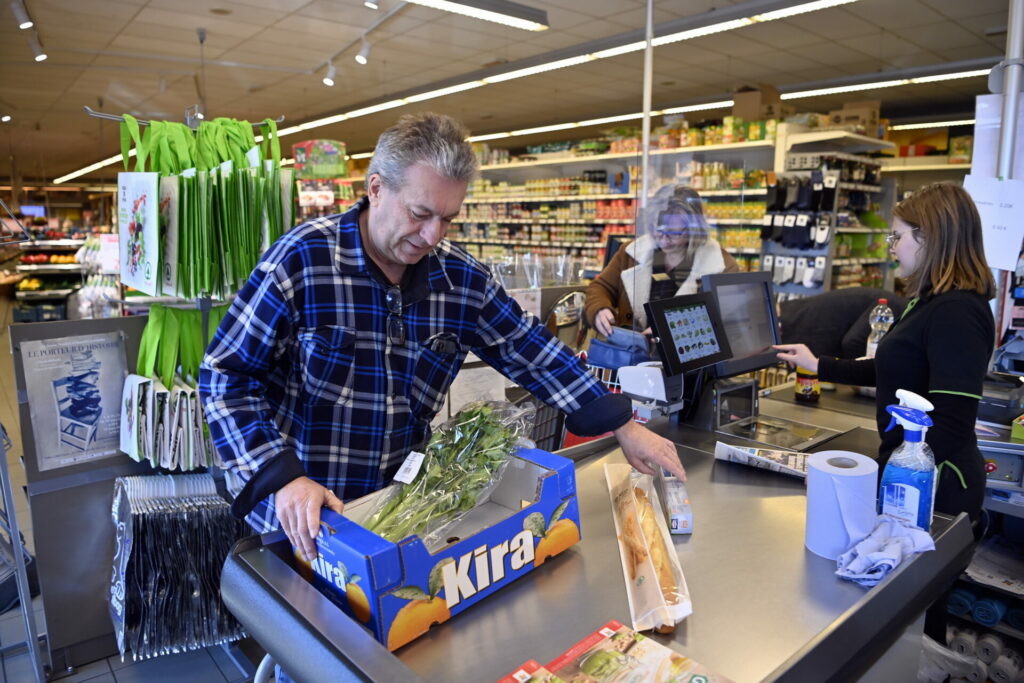Former US President Ronald Reagan once remarked that inflation is "as violent as a mugger, as frightening as an armed robber, and as deadly as a hit man." Given Belgium's current soaring inflation rate, the question naturally arises: How have Belgians sought refuge from potential economic homicide?
A recent study conducted by consumer analyst group GfK has gone a long way toward answering this question. In particular, it has revealed numerous intriguing details about the specific ways in which Belgians' consumption habits have — or, in some cases, have not — been altered by rising prices.
Here is a sample of three of the study's more important or counterintuitive conclusions.
(Inter)national vs store brands
The GfK study found that one way in which Belgians have not significantly altered their spending habits is by purchasing store brand goods, which are typically far cheaper than their national or international alternatives.
"Store brands gained only 1% market share in 2022 compared to 2021," explained GfK consultant François Lambert. "We are far from what the sector expected, namely a steeper increase in the purchase of store labels than during the financial crisis of 2008. At that time, these store brands had taken 2% more of the market share."
He added: "In my opinion, many people have told themselves that changing brand is not worth it."
Downtrading — but only by the rich
In addition, the study found that Belgians' average shopping bill has increased "only" 5.5% over the past year — a sizeable number, but still significantly less than the actual rate of food inflation, which is currently running at 15.59%.
How have Belgians done this? According to the GfK report, by engaging in what economists call downtrading; or, in layman's terms, by trimming their spending habits. In particular, many Belgians now purchase less expensive 'substitute' goods (e.g. chicken instead of beef), shop more frequently at discount stores (e.g. Aldi or Lidl), and take increasing advantage of special promotions or store deals. (Arguably, the fact that Belgians are willing to downtrade in these areas makes it all the more mysterious why they are apparently unwilling to do so in the case of store brands.)
However, the study also noted major discrepancies in the way in which richer and poorer Belgians have altered their consumption habits. In particular, it found that while richer Belgians experienced a mere 3% rise in shopping costs in 2022, poorer Belgians' bills rose by two-and-a-half times that amount (7.5%).
Whence the difference? According to Lambert, the answer is (or should be) obvious: only richer Belgians can engage in downtrading, whereas poorer Belgians — who, so to speak, already "trade down" — cannot.
"The higher your income and expenses, the more opportunities you have to escape inflation by adapting your purchases," Lambert explained. "And the lower your income and expenses are, the less room you have to manoeuvre to pay less because you have already implemented all possible savings measures before inflation."
Or, as the Ancient Greek historian Thucydides once put it: "The strong do what they can, and the weak suffer what they must."
Holiday cheer
Finally, the GfK report found that Belgians did not, for the most part, significantly reduce their consumption over the Christmas and New Year holiday period last year.
Related News
- 'I may be crying wolf': Belgian economist calls for major change to wage indexations
- New study paints stark picture of Belgium's growing economic despair
Indeed, the study noted that Belgians' purchases of so-called fast-moving consumer goods (FMCG) — or products which are typically sold quickly at low cost (e.g. food, beverages, toiletries, etc.) — actually increased 6% in December 2022 compared to the same month in 2021.
According to Lambert, this hike in consumption is almost certainly due to a confluence of factors: "To the Horeca [hotel/restaurant/catering] establishments that were closed for lack of sufficient staff, to the relaxation of energy prices, and to a fairly mild December," he explained.

